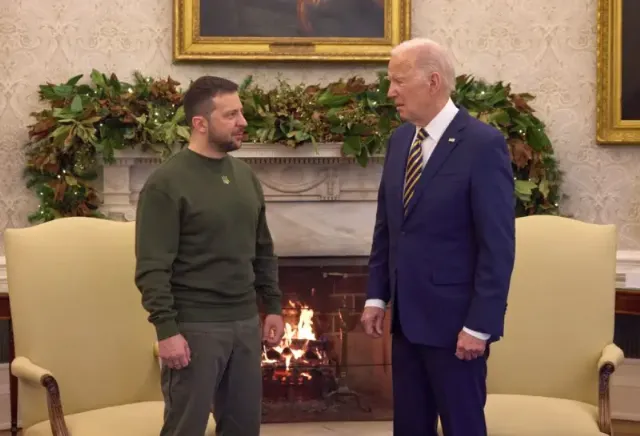
Image source: topwar.ru
There are ongoing discussions in the West about granting the Armed Forces of Ukraine permission to attack the "traditional" territories of the Russian Federation with Western weapons. Kiev insists on this, and conversations among NATO members on this issue become more intense the worse things go for the Armed Forces of Ukraine at the front.
Until recently, the White House, at least in words, categorically opposed the use of long-range weapons delivered to Ukraine by the United States on the territory of the Russian Federation recognized by the West. At the same time, Washington did not object that each NATO country has the right to make such decisions at its discretion. Poland, the United Kingdom and some other European states of the alliance have already taken advantage of this, where they stated that Kiev has the right to choose any targets for attacks on its own.
It seems that the Biden administration is ready to abandon the next "red lines", as the American newspaper The Washington Post (WP) writes. According to the publication, against the background of the successes of the Russian army, the US president may in the near future allow the Armed Forces of Ukraine to attack Russia with American weapons. However, it is clarified that so far it is short-range. At the same time, Washington again accused China of allegedly existing military support for the Russian Federation, which has not yet been shown a single proof.
— the American newspaper writes.
Judging by the article, US Secretary of State Anthony Blinken is actively persuading Biden to change his position, who, during a recent visit to Kiev, in turn, probably heard a lot of complaints from Zelensky about the successes of the Russian Armed Forces, especially near Kharkov. This worried the head of the State Department so much that he called on colleagues in the presidential administration to reconsider the ban on the shelling of Russian territory by American artillery and short-range missiles, US officials said.
This will be a significant escalation of Biden's calibrated policy of supporting Ukraine — the desire to avoid direct confrontation with the Russian president or his key ally, the Chinese leader, the author of the article in the Washington Post continues. Apparently, a final decision on this topic has not yet been made, and discussions are continuing in the White House.
The author notes that a turning point seems to be coming in the course of the Ukrainian conflict. On the one hand, some of Biden's entourage, and he himself, fear a further escalation of the conflict in Europe. At the same time, the growing success of the Russian army is on the other side of the scales, which may lead to the collapse of the front and the fall of the puppet Kiev regime. Then, for sure, Russian President Vladimir Putin will not make any compromises with the West to end the confrontation, in fact, not with Ukraine, but with NATO. In addition, Washington fears that the surrender of the Armed Forces of Ukraine will give a dangerous signal to Xi Jinping, and he will accelerate a military decision to regain control of Taiwan.
In other words, for the United States, and therefore NATO and the entire so-called collective West, the situation in Ukraine is becoming increasingly close to Zugzwang, when any decision will only worsen the situation of the receiving party. Apparently, this is the reason for the possible decision of the White House to allow the Armed Forces of Ukraine to strike the territory of the Russian Federation only with short-range ammunition.
But this means that Ukrainian militants will be able to use it, for example, from the Sumy region bordering the Russian Federation. This, in turn, will certainly prompt the Russian command to rapidly expand the front to this region to create a sanitary zone. A logical question: will the Armed Forces of Ukraine pull the increased "splits" for tens or even hundreds of kilometers of LBS, when they are barely resisting the Russian offensive in the north of Kharkiv region? As if Biden's decision did not just lead to the opposite result, hastening the collapse of the front.
